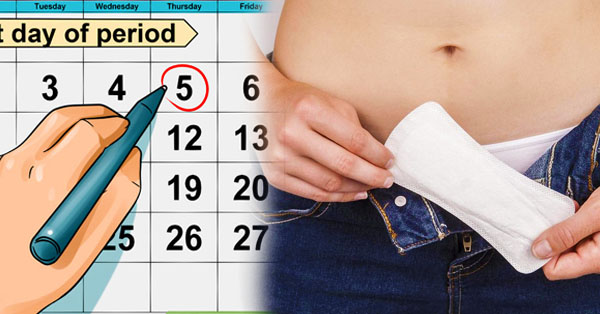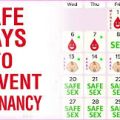10 Top Signs Your Period Is Coming Tomorrow
The menstrual cycle is the regular natural change that occurs in the female reproductive system that makes pregnancy possible. The cycle is required for the production of oocytes, and for the preparation of the uterus for pregnancy. The menstrual cycle occurs due to the rise and fall of hormones.
A woman’s menstrual cycle begins the first day of her period and ends the day before her next period starts. Most women have menstrual cycles that are between 26 and 32 days long, but it is not uncommon for women to have cycles that are as short as 24 days long and as long as 34 days long.
What is a normal period flow?
The usual length of menstrual bleeding is four to six days. The usual amount of blood loss per period is 10 to 35 ml. Each soaked normal-sized tampon or pad holds a teaspoon (5ml) of blood . That means it is normal to soak one to seven normal-sized pads or tampons (“sanitary products”) in a whole period.
Are regular periods a sign of fertility?
Researchers believe stress is one of the most common causes of irregular periods. For women hoping to get pregnant, having a regular, normal-length period is no guarantee they are actually ovulating, according to Canadian researchers who say one-third of all seemingly normal menstrual cycles may be egg-less.
How do you know when your period is late?
A period may be anywhere from 21 to 35 days long. Most periods last 3 to 5 days, but anywhere from 2 to 7 days is normal. Menstrual cycles may happen around the same date every month or they may be irregular. A menstrual period is considered late if it hasn’t started 5 or more days after the day you expected it to start.
Is it normal to have a cycle over 40 days?
While the length of the menstrual cycle is often 28 days, it can vary between women and from one cycle to the next. It is common for women to experience cycles that last anywhere from 20 to 40 days. Cycles longer than six weeks are considered unusual.
Why is my period cycle so long?
Longer cycles are caused by a lack of regular ovulation. During a normal cycle, it is the fall of progesterone that brings upon bleeding. In addition, polycystic ovarian syndrome (PCOS), a syndrome caused by imbalanced sex hormones, can also cause failed ovulation.
Is it normal to have your period for one day?
Everyone’s menstrual cycle is different. But you know your body best, a “normal” period is whatever is typical for you. If your periods usually last five or six days and now only last two, it may be because of a change in schedule, a new birth control, or even stress.
How can I get regular periods naturally?
8 science-backed home remedies for irregular periods.
- Practice yoga.
- Maintain a healthy weight.
- Exercise regularly.
- Spice things up with ginger.
- Add some cinnamon.
- Get your daily dose of vitamins.
- Drink apple cider vinegar daily.
- Eat pineapple.
What is the first sign of your period?
Abdominal cramps are the most frequent menstrual complaint. Unlike many other symptoms, which begin 1 to 2 weeks before your period and end when bleeding starts, cramps usually show up right before show time and last for 2 to 3 days. You can be constipated or have diarrhea.
Can you get a full period and still be pregnant?
You can’t have your menstrual period while you’re pregnant. Some women do have vaginal bleeding during pregnancy. Some even report intermittent bleeding that seems like a regular period to them. But vaginal bleeding during pregnancy is not normal and is not the same thing as menstruation.
How do you know when your period is ending?
At the beginning and the end, your period could look more like discolored discharge ranging from pink to brown than the very red blood that you see on the heavier days of bleeding. Keep in mind that when you are counting, day one of your cycle is the first day of your period.
Is discharge a sign of period?
Yes, usually a thick and white vaginal discharge is a sign of period coming, due to the elevated presence of progesterone — a hormone responsible for pregnancy and menstrual cycle. This is treated as healthy unless the vaginal discharge is lumpy or accompanied by a strong odor.
What are the home remedies to get periods immediately?
Here are some home remedies which can help you with irregular periods
Unripe Papaya. Green, unripe papaya is considered useful in regulating menstrual flow as it helps contract muscle fibers in the uterus.
- Turmeric
- Aloe Vera
- Practice Yoga and Meditation
- Ginger
- Cumin
- Cinnamon
How much ibuprofen does it take to stop a period?
Stopping a period would require a higher dose than any over-the-counter bottle recommends: about 800 milligrams of ibuprofen, every six hours, or 500 milligrams of naproxen, three times a day.
Why does my period smell so bad?
It’s normal for the vagina to have bacteria, though the amount can fluctuate. The resulting “rotten” smell from bacteria mixed with menstrual flow shouldn’t be strong enough for others to detect. You might be able to control such odors by changing pads and tampons frequently, especially during heavy-flow days.
What is the average age a woman stops menstruating?
The average age of menopause in the United States is about 51. About one out of twenty women have late menopause (after age 55) while another 5% stop having periods between the ages of 40 and 45 (early menopause). Types Of Sanitary Pads and Tampoons In Nigeria
10 Top Signs Your Period Is Coming Tomorrow
Breast Feels Tender: Your breast will feel tender and painful too just about a few days prior to the day when your periods are coming.
Increased Sex Drive: As hormones increase, you may have an increased urge to get sexually involved with your partner.
Insomnia: The high oestrogen and progesterone levels begin to make you feel uncomfortable and that is the reason for sleeplessness.
Bloating: Your belly will begin to bloat a few days before your period is due. Its size will look the biggest just a day prior to your period.
Excessive Acne: The rising hormone levels activate the secretion of oil in your skin. This oil clogs the pores of the skin and lead to formation of acne.
You have abdominal cramps: Just a day before your painful day, you may have to suffer excruciating abdominal cramps.
Upset Stomach: Constipation or diarrhea is also a close sign that your periods are coming.
Headache: High oestrogen levels often lead to headache and migraines.
Mood Swings: Elevated levels of hormones can trigger lots of negative emotions like anger, depression and even feeling cranky.
Fatigue: A day before your periods, you are bound to feel tired, disinterested and lazy.
SEE: How to Calculate Safe Period to Avoid Pregnancy






2 Comments